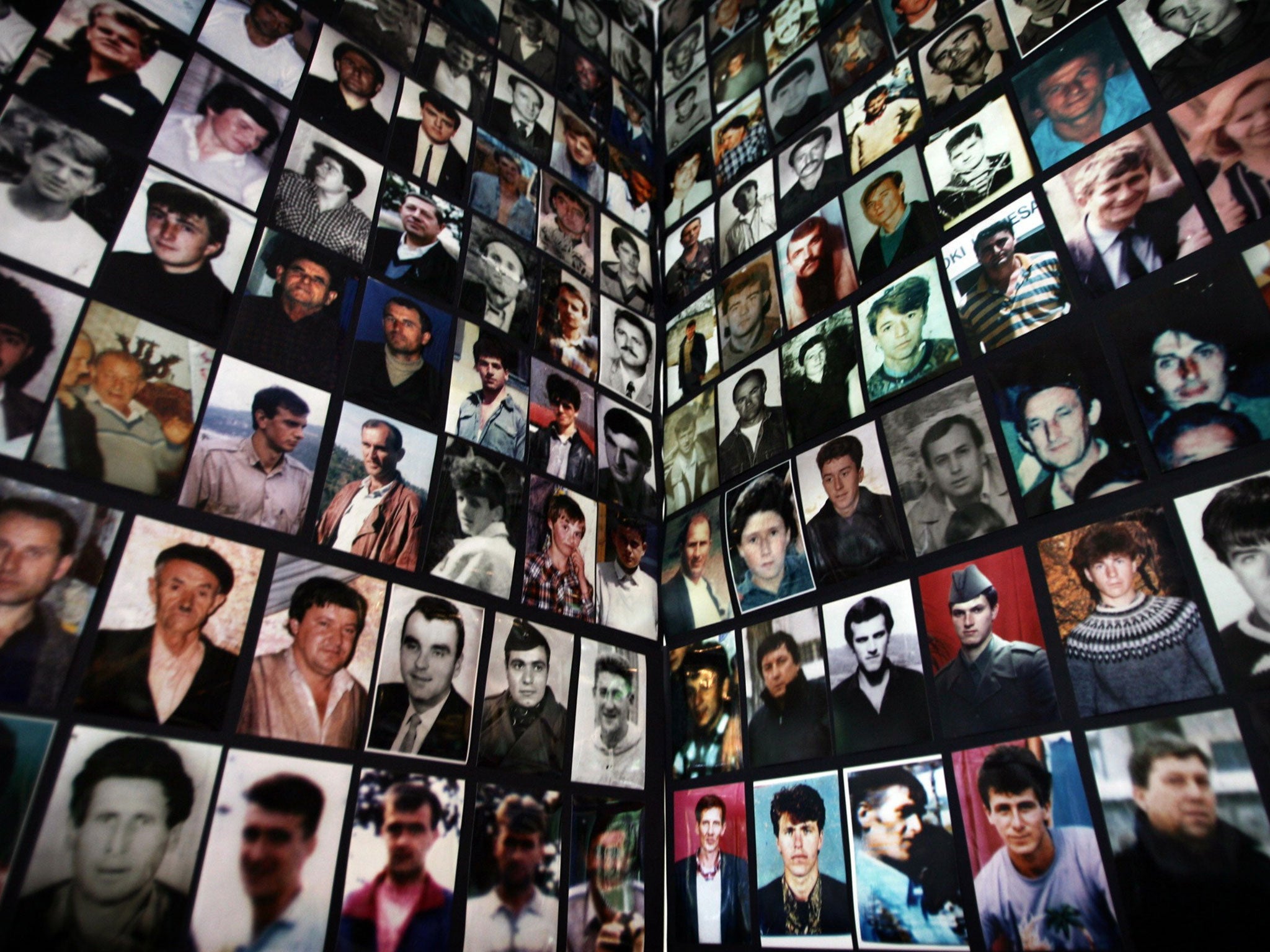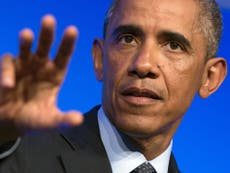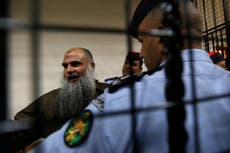After the atrocities committed against Muslims in Bosnia, it is no wonder today’s jihadis have set out on the path to war in Syria
While the US State Department told us in Bosnia that 'fundamentalism' – the horror word of the time – might take root in Bosnia, no one spoke of 'radicalisation'


In 1993, walking across the Qasr el-Nil bridge in Cairo, I was stopped by a young man. Was I a reporter, he asked? Had I been in Bosnia? I told him I had just returned from Mostar. He was almost in tears. He wanted to help the Bosnian Muslim women who had been raped by the Serbs, he said. He wanted to go to Bosnia and marry one of them, to give her a “pure” life. He repeated this, over and over again. I tried to explain that he didn’t speak Serbo-Croatian, that many of the women were already married before their capture by the Serbs. Within minutes, however, a uniformed Egyptian police officer approached us and ordered the man to leave. “I am sorry,” he said to me. Why, I asked? Here was an Egyptian man who wanted to offer help to a Muslim woman.
The man’s crime, of course, was that he had been “radicalised”. He was deeply upset by reports of the mass rape of 20,000 Muslim women in Bosnia – the figure may have been exaggerated, but the West certainly did nothing to prevent these atrocities – and he wanted to do something about it. Perhaps he had heard that the Egyptian theologian Youssef Qaradawi, at a Zagreb conference on human rights in March of 1993, had urged young men to marry the victims of rape “to honour them”, as an Arab newspaper reported at the time, “and as a sign of respect for their sacrifice”.
I used to travel to the Balkan wars from Beirut via Budapest and would regularly return to Lebanon, still partly in ruins from its own 15-year war, to rest. I would swim, and read on my seafront balcony, and largely ignore the hideous photographs of Bosnian massacres on the front pages of the Arab press. Been there, seen that, I would arrogantly say to myself. And so I largely missed the expressions of fury and impotence of the Arabs in response to a genocide of Muslims which, for months after month, the West resolutely refused to prevent.
Going through those pages in the Beirut newspaper archives today, I find hundreds of articles demanding help for the outgunned and outnumbered Bosnian defenders, blaming the UN for both the partition of Palestine and the partition of Bosnia, comparing Bosnia with the Muslim expulsion from Andalusia, and praising Arab Muslims who – horror of horrors – had gone to fight for their Bosnian co-religionists. The Lebanese magazine as-Shiraa reported on the West’s sudden fear of “the ‘devil’ of fundamentalism” in Bosnia. The Emirati newspaper al-Ittihad claimed, with good reason, that governments of “the Islamic world” were copying the West – by doing nothing. It was the individual Arab who was prepared to fight for his Muslim brothers in the Balkans.
Bill Clinton refused an Iranian offer of battalions of regular troops to defend Bosnia – this would be unwarranted intervention in the affairs of Europe – but no one objected when guns arrived for Bosnian forces from Muslim countries. Hezbollah in Lebanon – though Shia – initially sent 150 volunteers to Bosnia, then Algerians arrived, fresh from fighting their own government. An entire mujahedin battalion emerged in the forests of Bosnia – the “muj” we journalists called them, rather superciliously – while individual Iranian fighters paid their own way to Sarajevo. The face of one of their martyrs occupies an entire apartment bloc wall in Tehran today.
Yet while the US State Department privately told us in Bosnia that “fundamentalism” – the horror word of the time – might take root in Bosnia, no one spoke of “radicalisation”. It was regarded as quite natural that Arab Muslims might want to help their Bosnian brothers and sisters, not least because, for at least two years, we intended to do nothing about it. It even worked for the “Christian” side in the war. I remember an ex-British soldier serving as a mercenary for the Croats – wearing his former Marine uniform, complete with green beret.
Odd, isn’t it, how we took a vaguely similar view of those Muslims who originally travelled to Syria to help overthrow Bashar al-Assad’s regime. The peaceful revolution was being ruthlessly suppressed and we were happy to send money and guns to the opposition – and turn a blind eye if Muslim “humanitarian” workers were so angered by events that they joined the rebels. Only when the toughened fighters of Afghanistan and Chechnya and other Muslim nations turned up to take over the battle did we suddenly express our horror.
We did nothing about the Saudi money that still flowed towards the opposition – as indeed it had towards the Bosnians in the 1990s, which is why that beautiful country is now littered with the ugliest Saudi-style mosque architecture the Balkans have ever witnessed. Only when the opposition to Assad turned out to be as hostile towards us – the West – as it was towards his regime did we suddenly throw up our hands in horror. Ethnic cleansing of Muslims in Bosnia went on for years before we intervened. Ethnic cleansing of Christians and Yazidis in Iraq – and the murder of American hostages in Syria – brought an almost immediate response. US planes bombed Isis, which calls itself Islamic State, American leaders spoke of “apocalypse” and “end-of-the-world theology” – as if we had only just discovered that the deviant al-Qa'ida killers of Abu Bakr al-Baghdadi were a crucifying, head-chopping Sunni sectarian gang. There is, after all, no difference between the executions of Iraqis in Raqqa last year, the beheading of journalists in Syria in the last three weeks and the decapitation of another Lebanese soldier – a Shia, of course – this weekend.
All of which takes us back to that phrase “radicalisation” – replaced most recently, I notice, by “brainwashing”, presumably unearthed from the Korean War Communist psycho-war against US prisoners. I have said before that those foreign “Western” Muslims fighting for Isis must surely have been “radicalised” before they left their homes in Europe or America. We put this down to the internet, crazed preachers and a mumbo-jumbo version of religion. Sure. And let us not endow Isis with the right to resolve injustice. Not one word did it utter in sympathy for the 2,100 dead Palestinians in the last Gaza war. In his last weeks, even Osama bin Laden realised that Isis – and the Taliban – represented a sectarian clique rather than a jihad against Islam’s enemies.
But isn’t there also a legacy of history here? Did we think we’d get away with Palestine in 1948? Or Bosnia in 1992? Or Iraq in 2003? Doesn’t injustice get a look in any more?
Echoes of Chamberlain in Obama’s Ukraine rhetoric
Despite Nato’s flexing of its plastic muscles these past few days, we obviously don’t have the spittle for a military conflict over Ukraine, whatever happens to the “truce”. Maybe its government leaders are a bit too slick at public relations (“Russian boots on Ukrainian ground”, and so on) and maybe there’s that lingering memory of how Ukrainian nationalists outdid the Nazis in slaughtering their Jews.
In Beirut, re-reading Christopher Thorne’s little masterpiece on the approach of war in 1938, I was struck by his account of Hitler’s threat to gobble up Czeckoslovakia. Even the Daily Express was asking: “Why do so many people in Britain want to fight?” Crowds in Whitehall actually shouted: “Stand by the Czechs.” I don’t think anyone in Whitehall right now is shouting: “Stand by the Ukrainians.” Nor are they going to. But in 1938, Neville Chamberlain, like Barack Obama today, was still trying to “cobble together” a coalition – and it didn’t work.


